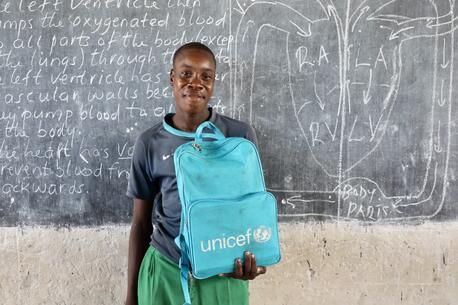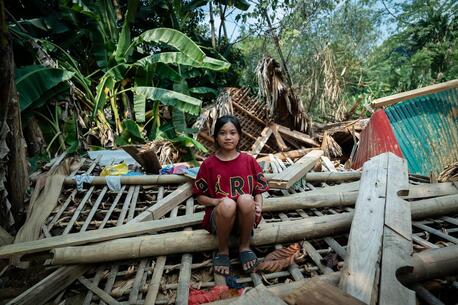
Child Crisis in Nigeria: More Children Used as Human Bombs
Girls and boys in northeast Nigeria are being strapped to explosives and sent to carry out deadly attacks on civilians.
So far this year, 83 attacks have taken place using children, usually girls — four times as many as in all of 2016. The militant group known as Boko Haram has claimed responsibility for many of these.
Since Boko Haram launched its armed insurrection in 2009, at least 20,000 people have been killed and more than 2.6 million made homeless in northeast Nigeria.
Boko Haram ramps up attacks on refugee camps in northeast Nigeria - aid agency https://t.co/tPLXdsmi5kpic.twitter.com/I1BYWMmHl2
— Reuters Africa (@ReutersAfrica) August 18, 2017
Boko Haram militants have regularly atrociously mistreated children, attacking schools, abducting hundreds of girls and forcing boys to serve as soldiers. According to UNICEF's report SIlent Shame, "Youg girls are spotted in the markets, and nighttime raids drag them from their beds. In some cases, parents are killed in front of the girls in the process ... these children are victims confronted with no choice other than to follow orders to survive."
“These children are victims, not perpetrators,” said UNICEF’s Marie-Pierre Poirier. “Forcing or deceiving them into committing such horrific acts is reprehensible.”
“Young girls are spotted in the markets, and nighttime raids drag them from their beds. In some cases, parents are killed in front of the girls during the process. … these children are victims confronted with no choice other than to follow orders to survive.” — UNICEF report, Silent Shame
Laurent Duvillier, regional spokesman for UNICEF told Thomson Reuters: "It's basically turning the children against their own communities by strapping bombs around their bodies. … Some young children probably do not know they are carrying explosives, which are often detonated remotely."
Because of the bombings, children in public in this area can be viewed with suspicion and fear. Children who have been freed — or who have freed themselves — often face rejection or fear reprisals. Some are placed in administrative custody. A girl who returns home may be ostracized or abused for having been “a Boko Haram wife.” The stigma aggravates damage already done to these children by the militants.
“These children are victims, not perpetrators.” — UNICEF’s Marie-Pierre Poirier
Children’s lives are further imperiled by a crisis of displacement, malnutrition and the threat of famine. Because of an insurrection in the northeast, so far close to two million people have been displaced, most of them in the state of Borno. It's here, amid instability and turmoil, that children have been most prone to this deadly and lethal form of abuse.
UNICEF is working to help ensure that children can be accepted and reintegrated into the social and economic fabric of daily life — and, critically, not held responsible for their own exploitation.
Support UNICEF's work to save and protect Nigerian children.
Banner photo: The Monday Market in Maiduguri, Nigeria. On December 12, 2016, two seven-year-old girls detonated explosive charges in the market, killing one other person and wounding many others. © UNICEF/UN058605/Gilbertson VII Photo
HOW TO HELP
There are many ways to make a difference
War, famine, poverty, natural disasters — threats to the world's children keep coming. But UNICEF won't stop working to keep children healthy and safe.
UNICEF works in over 190 countries and territories — more places than any other children's organization. UNICEF has the world's largest humanitarian warehouse and, when disaster strikes, can get supplies almost anywhere within 72 hours. Constantly innovating, always advocating for a better world for children, UNICEF works to ensure that every child can grow up healthy, educated, protected and respected.
Would you like to help give all children the opportunity to reach their full potential? There are many ways to get involved.




